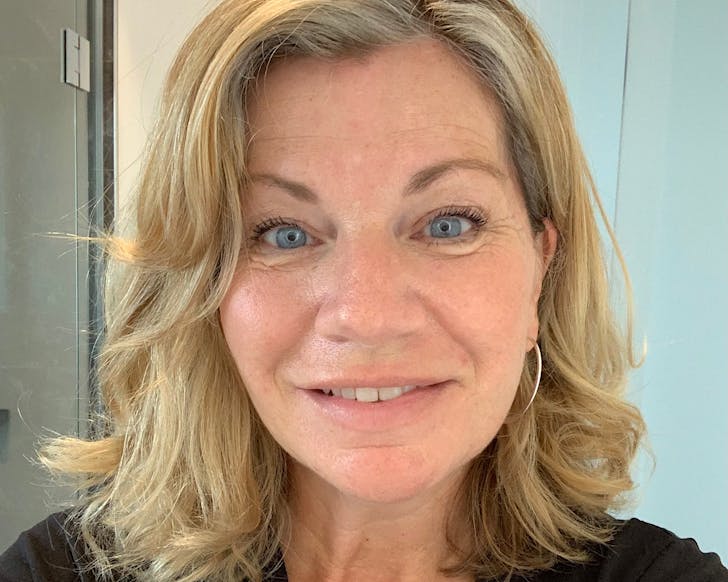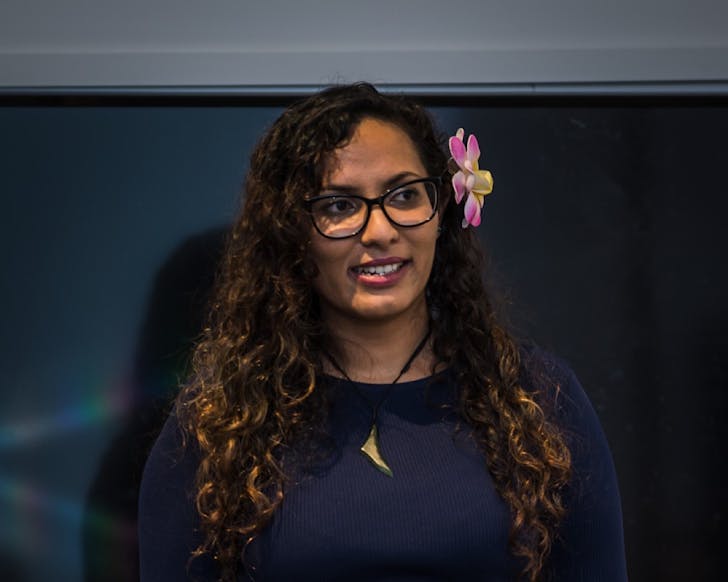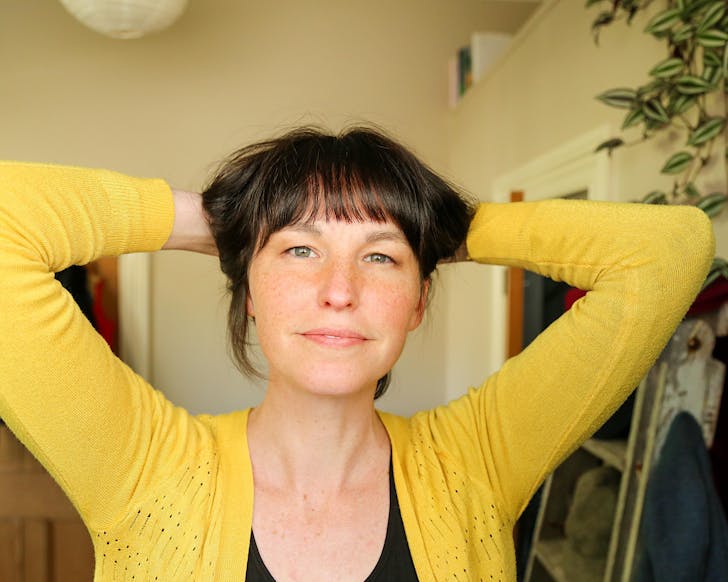Here’s How 9 Inspirational Women Are Breaking The Bias, Part 2
Welcome to part two of our inspirational interview series all about breaking the bias, the theme for International Women's Day 2022. To celebrate, we reached out to nine inspirational women to see what they had to say on the topic. From businesswomen and entrepreneurs, governance to corrections, we asked about current inspiration, experiences of discrimination, advice on breaking the bias, and what they're excited about for the future.
Here's part two of our International Women's Day inspirational interview series. (You can read part one here.)
Jade Tang-Taylor
Jade Tang-Taylor is a purpose-driven, design-led, creative social entrepreneur currently moving into governance. She’s the Director of Innovation and Partnerships at Innovation Unit and a proud working mum of one.
Who is inspiring you at the moment?
Traci Houpapa is the Chair of a ministerial advisory panel I’m part of called the National Advisory Council on the Employment of Women (NACEW). It’s rare to have a woman chair a board, particularly a Māori woman. She weaves together Te Ao Māori and the pakeha/western space really well and is someone I’ve long admired. Ara Simmons is also inspiring me at the moment. She wears a range of different hats but the most engagement I’ve had with her is through her Manawaka Ao group and Te Tiriti workshops by women of colour, for women of colour. She has a calming and articulate energy, and sense of curiosity about her which is great. Last but not least is my daughter, Phoenix Grace Tang Taylor. She has inspired me from day one to be a better human. A big part of why I’ve started to move into the area of governance is trying to explore the elements or changes we need to make today to make sure she has a thriving future tomorrow.
Have you ever been discriminated against for being a woman?
So many times, on all levels. I remember going to a networking event and someone was explaining what we did—a creative agency for social change—and there was a senior white man who was really influential, who patronisingly said “Oh, that sounds nice, darling.” I remember the visceral reaction I had in response. Before he’d opened his mouth I had been excited to hear his opinion given his business expertise but I didn’t really talk to him again after that. At a board level I’m often talked over. I’m still quite early on in my governance career, I’m often the only person under 50, the only person of colour and the only woman on the board so that can be really daunting. To show up in those spaces and be ready to share, despite imposter syndrome, only to be talked over, isn’t ideal.
What advice would you give others about breaking the bias against women?
Spend time unlearning, to relearn. What I mean is relearn and reconnect with your sense of self, with where you come from—not just your country of origin but with your ancestors too—and trying to lean into that wisdom, and what that means for you in an Aotearoa NZ context, when you’re making big decisions. Finding a group of ‘truth-tellers’ can help, a group of people who can give you constructive, firm feedback whether it’s good or bad news. My truth-tellers are a group of female founders. We meet together every quarter to support each other and witness each other’s journeys, and have been doing so for the past seven or so years.
What are you really excited about for the future?
It feels like the way we’ve been doing things isn’t really sustainable for us as humans, let alone for the planet, and it really feels like we’re in a time of transition, although I don’t know what that looks like exactly yet. The Longtime Academy is a podcast that resonated with me recently—it’s all about the decisions we need to make today as humans to ensure we have a thriving world a hundred years from now in 2122 which is pretty exciting.
Connect with Jade Tang-Taylor on LinkedIn.
 Beth Hill
Beth Hill
Beth Hill is the Creative Services Director at the Department of Corrections where she champions the arts as a vehicle for change. In 2018 Beth was awarded The Arts Access Accolade and the Maui Tikiti a Taranga Award for Leadership in the Arts in Corrections.
Who is inspiring you at the moment?
I have lots of really amazing women in my life. My sister lives in the UK. She left school at sixteen, had her two first kids really young, but ended up as the director for a charity called Action For Children. She took redundancy from that job as a way of ensuring other people below her kept theirs. The other person who really inspires me is my absolute best friend in the whole world, Lara. She’s been a stay at home mum for years and sadly one of her children got really sick with leukaemia when he was little. She always manages to find joy at times when other people would be just head in their hands. She inspires me every day.
Have you ever been discriminated against for being a woman?
I have been but when I was young I didn’t realise I was being discriminated against for being a woman. My teens were the late ‘80s/early ‘90s and we just accepted stuff. My work is a very male environment which is hugely challenging when you’re a woman because you’re expected to behave in a certain way. I have the added problem sometimes of being pakeha, British and a woman while working alongside taane who might have had difficult relationships with women, and who have been and are being so deeply impacted by colonialism. I’ve learned to manage these situations by being mindful of tikanga, and cultural expectations of women in some environments but sometimes it does feel very hurtful. The last time that happened I challenged it officially, for the first time, and the response that came back was wholly positive which was confusing. It made me start to doubt myself and the validity of my experience. I suddenly realised what I was doing and had to stop myself. We need to be able to speak up.
What advice would you give others about breaking the bias against women?
Respect yourself and respect others. I treat everybody the same, with warmth and professionalism, that’s how I get through. We can get so caught up in being horrible to each other, judging and assessing each other based on our own way of doing things. If someone’s opinion isn’t the same as yours, it doesn’t mean they hate you. We’ve got to understand that not everyone feels the same as us and the only way to challenge and hopefully break bias is to be prepared to have conversations, and to actually listen.
What are you really excited about for the future?
I feel like this year is a year of new beginnings for me, new challenges, and that’s what I’m working on at the moment. I love doing what I do but I’m going to get to the stage where what I do becomes redundant. The Hōkai Rangi strategy is a brilliant strategy that spreads across lots of different government agencies, improving outcomes for Māori in our community and, quite rightly, needs to be delivered for Māori, by Māori so what I’m excited about is being able to rebuild the programme [when we’re allowed to return to the prison] and then channel it to new people and new organisations.
Connect with Beth Hill on LinkedIn.
 Nurain Janah
Nurain Janah
Nurain Janah is a Senior Consultant at Ernst & Young. She’s also a speaker, coach and founder of Authenticity Aotearoa, a charity focused on empowering women of colour to thrive and to express their authentic selves.
Who is inspiring you at the moment?
I’ve been working on Authenticity Aotearoa but I’ve set up a business as well. When I was thinking about what to call it I started researching inspirational Maldivian people and I came across a queen called Rehendi Khadija. We used to be a matriarchal society and this queen is very popular in the mythology we grew up with. She’s a Sultana of the Maldives and I’m inspired by the unapologetic way she held onto her seat in power, ruling fairly and being able to make difficult decisions.
Have you ever been discriminated against for being a woman?
Yes but my experience is of the intersectionality of both a woman, generally, and a woman of colour. There are a lot of stereotypes and expectations that come with being a woman, within diverse communities as well as the pakeha-centric world, which can feel restricting. I’ve had various experiences where I’ve been spoken over or dismissed entirely based on the way I present. One time I was advocating for change during a public presentation. At the end of my presentation the chairperson said “It’s really deceiving because it’s so pleasant to listen to your voice because you’re so soft-spoken but when you actually listen to the substance of what you’re saying it’s actually not that pleasant.” That was really jarring for me. While my initial reaction was to get voice training which I’ve done so I can now lower my voice if I need to, I’ve since come to the realisation that this incident was more about me challenging his notion of what someone who doesn’t agree with him is going to sound like. That’s the thing about a lot of these micro-aggressions, I treat them as learning experiences, deciding to not change myself and instead focusing on how I want to show up most authentically in those spaces.
What advice would you give others about breaking the bias against women?
If we’re talking about allies or if you’re in a position of power or privilege, own that no matter how uncomfortable it makes you feel. And lift others up. I’ve been talking a lot lately around the visibility of women and, particularly, the double whammy for women of colour. We describe the barriers in place for women to progress as a glass ceiling. It’s glass because, generally, women can see where to go despite the barriers but for women of colour it’s actually a concrete ceiling because we can’t see role models around us or the path ahead. So for allies the biggest thing you can do is—and it’s both a small and a big thing—is to sit down with someone who might not see role models and might not know what the next step is to progress, have a coffee, share those steps and champion them to go through. For women of colour, find other women of colour, find that solidarity, there’s a lot of power in community.
What are you really excited about for the future?
I’m really excited about my business. My deeper purpose has always been around contribution but until recently I realised that this was constraining me a bit because I felt like I couldn’t pay myself—I couldn’t do good and sustain myself—so I couldn’t aspire to any really big goals. So I’m excited about the personal growth journey around owning my value, starting a business and, alongside of that, doing something I’ve always wanted to do—growing this community overseas, kind of like an old boys’ club except for women of colour around the world.
Follow Nurain: @nurainjanah

Brough Johnson
Brough Johnson is passionate about elevating underrepresented stories. She’s the co-founder and CEO of Narrative Muse, a platform that matches people with books, TV shows and movies by and about women and gender diverse folks.
Who is inspiring you at the moment and why?
Two people close to me are inspiring me right now—a friend named Sonya and another friend named Kiterangi. I’ve been chatting with them a lot more in recent times. They’re delightful humans and we have these budding friendships, resonating with each other around wanting to elevate social consciousness in the desire for equity in the world while looking after our personal wellbeing. We’re seeking the same things and they do it through joy, so it just helps stuff that can feel quite big feel not as big.
Have you been discriminated against for being a woman?
So here’s the real challenge behind that question: the reality is that women have certainly experienced various forms of marginalisation—not being given as many opportunities, not being taken seriously, treated as if our voices and bodies aren’t as important. I’ve experienced those things but being a white woman in this world I’ve experienced these things a lot less. I can see that things happen for my men counterparts with less friction and more ease but I’m not so restricted that I’m not able to dream and make things happen. I’m also very much a part of the queer community and because I’m surrounded by a lot of extraordinary queer women and non-queer women who get a lot of shit done that means we’re constantly elevating each other and helping each other see what’s possible which means I’m not rubbing against the discrimination as often.
What advice would you give for breaking the bias against women?
While there’s a bias against women there’s also a bias against anyone who isn’t a man, so, other gender diverse folks as well. Men are absolutely dominant culture but those who experience marginalisation because of their gender the most are those who are from the gender diverse community so I’ll answer in the context of bias against women and gender diverse folks. Here’s where it’s tough. We can elevate and support each other to know that we’re awesome, to do really cool work, but those that can really support and help women and gender diverse folks are those who are not women and gender diverse folks—it’s those who are allies. Whenever men are allies it makes a really, really big difference and I feel that way about all dominant culture. Sometimes I am part of dominant culture because I’m a white woman, sometimes I’m not part of dominant culture because I’m a queer woman so it just depends on context and setting. If I’m in a setting where I am part of the dominant culture then it is up to me as an individual to be an ally in whatever way I can for those who aren’t part of the dominant culture in that room. And to be an effective ally it’s really important to recognise and acknowledge when we’re able to thrive as individuals due to being part of that dominant culture because that means we can identify those moments when others aren’t and that’s how we can support others.
What are you really excited about for the future?
In the last couple of years I think we’ve experienced a whole lot of resilience-building here in Aotearoa New Zealand and, oddly, I feel that things are, eventually, going to get better and easier, that we’re going to be more okay then not. I’m hopeful our resilience-building is going to do some really powerful things that will let us grow into whatever this new world is.
Follow: @narrative.muse
Want to dive deeper into the narrative? Here are 9 ways to celebrate International Women's Day in Tāmaki Makaurau.
Image credit: supplied.
